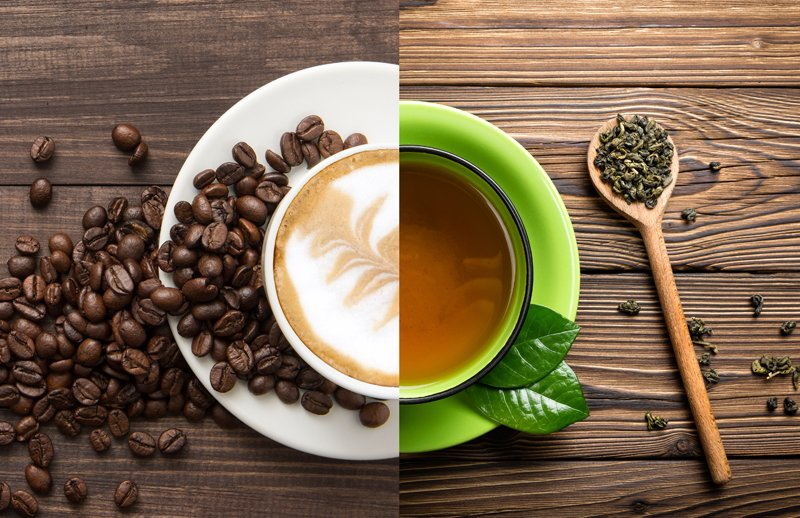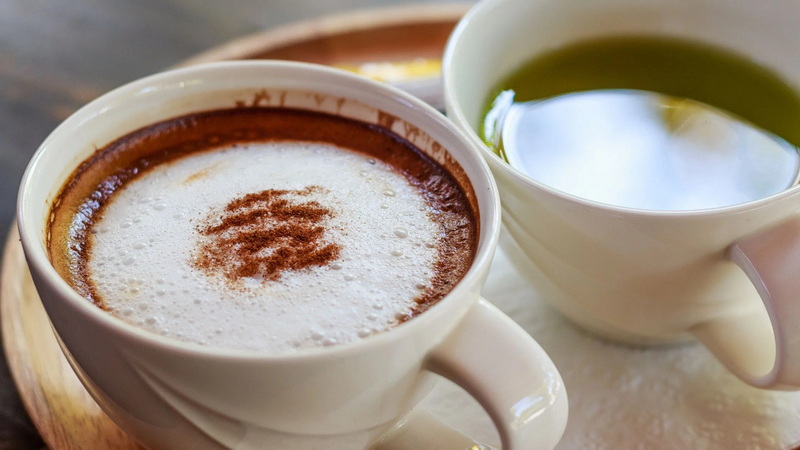Content Menu
● Understanding Green Tea Extract
>> Caffeine Content in Green Tea Extract
● The Caffeine Calculation
● Health Implications of Caffeine from Green Tea Extract
● Benefits Beyond Caffeine
>> Weight Management
>> Antioxidant Properties
>> Cognitive Function
● Recommended Dosage
● Potential Side Effects
● Interactions with Medications
● Choosing Quality Green Tea Extract
● Conclusion
● FAQ
>> 1. What is the average caffeine content in brewed green tea?
>> 2. Can I take green tea extract if I am sensitive to caffeine?
>> 3. How does the extraction method affect caffeine levels?
>> 4. Is it safe to consume multiple servings of green tea extract daily?
>> 5. What are other benefits of green tea extract besides weight loss?
● Citations:
Green tea extract has gained popularity for its numerous health benefits, including its antioxidant properties and potential weight loss effects. One common question among users is: How much caffeine is contained in a specific amount of green tea extract, particularly in a 40 mg dose? This article will explore the caffeine content in green tea extract, the factors influencing this content, and the implications for health and wellness.

Understanding Green Tea Extract
Green tea extract is derived from the leaves of the Camellia sinensis plant. It is a concentrated form of green tea that retains many beneficial compounds, including catechins (especially epigallocatechin gallate or EGCG) and caffeine. The extraction process typically involves steeping the leaves in water or alcohol to isolate these active ingredients.
Caffeine Content in Green Tea Extract
The caffeine content in green tea extract varies significantly based on several factors:
- Brand and Formulation: Different brands produce green tea extracts with varying concentrations of caffeine. For instance, Jarrow Formulas offers 500 mg of green tea extract with approximately 40 mg of caffeine per serving. In contrast, other brands may provide less than 15 mg per serving or even exceed 200 mg in some formulations.
- Extraction Method: The method used to extract the active compounds can also influence caffeine levels. Some processes may retain more caffeine than others.
- Dosage: When considering a specific dose, such as 40 mg of green tea extract, the caffeine content can be calculated based on the concentration provided by the manufacturer. For example, if a product contains 40 mg of caffeine per 500 mg of extract, then a 40 mg dose would contain approximately 3.2 mg of caffeine.
The Caffeine Calculation
To determine the exact amount of caffeine in a 40 mg dose of green tea extract, we can use a simple formula based on known concentrations:
Caffeine Content=(Caffeine per Serving/Total Extract per Serving)×Desired Extract Dose
For example, if a green tea extract contains 40 mg of caffeine in a 500 mg serving:
Caffeine Content=(40 mg/500 mg)×40 mg=3.2 mg
Thus, a 40 mg dose of this particular green tea extract would yield approximately 3.2 mg of caffeine.
Health Implications of Caffeine from Green Tea Extract
Caffeine is known for its stimulating effects on the central nervous system, which can enhance alertness and improve cognitive function. However, it's essential to consume it in moderation to avoid potential side effects such as:
- Jitters
- Insomnia
- Increased heart rate
- Anxiety
According to health guidelines, up to 400 mg of caffeine per day is generally considered safe for most adults. Therefore, the relatively low amount of caffeine found in a typical serving of green tea extract is unlikely to cause adverse effects for most individuals.

Benefits Beyond Caffeine
In addition to its caffeine content, green tea extract is rich in antioxidants that provide various health benefits:
- Weight Loss: Studies suggest that green tea extract may help with weight management by enhancing metabolic rates and fat oxidation.
- Heart Health: The catechins in green tea can improve cholesterol levels and promote heart health.
- Brain Health: Antioxidants like EGCG may protect against neurodegenerative diseases by reducing oxidative stress.
Weight Management
Research indicates that the combination of caffeine and catechins can significantly enhance fat burning and increase metabolic rates during exercise. A study published in the American Journal of Clinical Nutrition found that participants who consumed green tea extract experienced greater fat loss compared to those who did not.
Antioxidant Properties
Green tea extract is packed with antioxidants that combat oxidative stress and inflammation. These antioxidants may help reduce the risk of chronic diseases such as cancer and heart disease. The primary antioxidant found in green tea is EGCG, which has been shown to inhibit tumor growth and promote cell death in cancer cells.
Cognitive Function
Several studies have suggested that the consumption of green tea extract may improve cognitive function and memory. This effect is attributed to both caffeine and EGCG, which may enhance brain function by improving blood flow and reducing inflammation.
Recommended Dosage
When considering supplementation with green tea extract, it's essential to adhere to recommended dosages to maximize benefits while minimizing risks. Most studies suggest a daily intake ranging from 250 mg to 500 mg of standardized green tea extract containing at least 50% EGCG. This dosage typically provides an effective amount of catechins while keeping caffeine levels within safe limits.
Potential Side Effects
While green tea extract is generally safe for most individuals when consumed within recommended dosages, some people may experience side effects such as:
- Gastrointestinal discomfort
- Nausea
- Headaches
These side effects are often related to excessive consumption or sensitivity to caffeine. Individuals with pre-existing medical conditions or those taking medications should consult healthcare providers before starting any new supplement regimen.
Interactions with Medications
Green tea extract can interact with certain medications, including blood thinners like warfarin and some anti-inflammatory drugs. The presence of vitamin K in green tea may affect how these medications work. Therefore, it's crucial for individuals on medication to discuss their plans with healthcare professionals before integrating green tea extract into their routine.
Choosing Quality Green Tea Extract
Selecting a high-quality green tea extract is vital for ensuring you receive optimal benefits without unnecessary additives or contaminants. Here are some tips for choosing a quality product:
- Look for Standardization: Choose extracts that specify their catechin content (especially EGCG) on the label.
- Check for Third-party Testing: Products tested by independent labs ensure purity and potency.
- Read Reviews: Consumer feedback can provide insights into product effectiveness and potential side effects.
Conclusion
In summary, while a 40 mg dose of green tea extract contains approximately 3.2 mg of caffeine, the actual content can vary based on brand and formulation. The health benefits associated with green tea extract extend beyond its caffeine content, making it a valuable addition to a balanced diet. As always, individuals should consider their personal tolerance to caffeine and consult healthcare professionals if they have concerns about supplementation.

FAQ
1. What is the average caffeine content in brewed green tea?
Brewed green tea typically contains between 30 to 50 mg of caffeine per 8-ounce cup.
2. Can I take green tea extract if I am sensitive to caffeine?
Yes, but it's advisable to choose decaffeinated versions or those with lower caffeine concentrations.
3. How does the extraction method affect caffeine levels?
Different extraction methods can lead to variations in how much caffeine is retained; some methods may preserve more than others.
4. Is it safe to consume multiple servings of green tea extract daily?
As long as total daily caffeine intake remains below 400 mg, moderate consumption should be safe for most healthy adults.
5. What are other benefits of green tea extract besides weight loss?
Green tea extract may also support heart health, improve brain function, and provide antioxidant protection against cellular damage.
Citations:
[1] https://www.livestrong.com/article/186702-how-much-caffeine-is-in-green-tea-extract/
[2] https://www.healthline.com/nutrition/10-benefits-of-green-tea-extract
[3] https://www.youtube.com/watch?v=RIbff5iD0GQ
[4] https://www.zhounutrition.com/blogs/the-greatness-files/green-tea-extract-q-a
[5] https://www.elo.health/articles/green-tea-extract-supplements/
[6] https://si.chenlangbio.com/knowledge/do-green-tea-extract-have-caffeine-
[7] https://examine.com/supplements/green-tea-extract/
[8] https://health.clevelandclinic.org/green-tea-extract-a-better-way-to-boost-energy-or-not
[9] https://www.caffeineinformer.com/caffeine-content/green-tea-extract
[10] https://www.healthline.com/nutrition/green-tea-and-weight-loss
[11] https://www.medicalnewstoday.com/articles/269538
[12] https://www.webmd.com/vitamins/ai/ingredientmono-960/green-tea
[13] https://www.canada.ca/en/health-canada/services/food-nutrition/public-involvement-partnerships/notice-modification-list-permitted-supplemental-ingredients-permit-use-green-tea-extract-supplemental-ingredient-foods/document.html
[14] https://www.reddit.com/r/chemistry/comments/3gt1zo/how_much_caffeine_in_green_tea_extract/
[15] https://www.medicalnewstoday.com/articles/269538
[16] https://www.sugimotousa.com/blog/caffeine-in-green-tea
[17] https://pubmed.ncbi.nlm.nih.gov/16506807/
[18] https://www.healthline.com/nutrition/caffeine-in-green-tea
[19] https://pubmed.ncbi.nlm.nih.gov/26065095/
[20] https://www.webmd.com/vitamins/ai/ingredientmono-960/green-tea
[21] https://en.wikipedia.org/wiki/Green_tea
[22] https://www.youtube.com/watch?v=0W62744hJkE
[23] https://www.elo.health/articles/green-tea-extract-supplements/
[24] https://www.youtube.com/watch?v=eMuE16vLV_s
[25] https://hammernutrition.com/blogs/endurance-news-weekly/green-tea-extract-in-fully-charged
[26] https://www.livestrong.com/article/186702-how-much-caffeine-is-in-green-tea-extract/






























